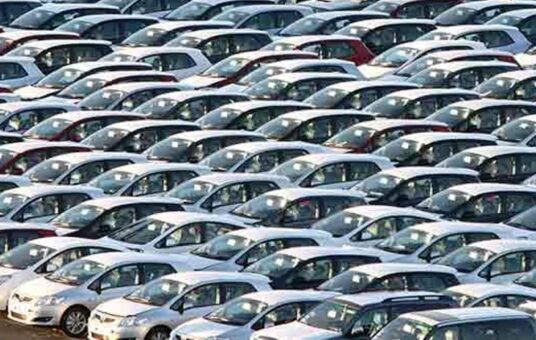ISLAMABAD: About 46 essential consumer items out of 51 have registered increase in prices during past one year showing the inflationary pressure on the masses.
The inflation data based on Sensitive Price Indicator (SPI) released by Pakistan Bureau of Statistics (PBS) for the week ended January 01, 2020.
The PBS calculates the weekly SPI with base 2015-16=100 covering 17 urban centres and 51 essential items for all expenditure groups/quintiles and combined.
The following is the comparison of price increase for the period between January 23, 2020 and January 24, 2019:
01. Onions: 116.82 percent
02. Potatoes: 111.15 percent
03. Pulse Moong (Washed): 88.52 percent
04. Garlic (Lehsun) 1 Kg: 65.43 percent
05. Tomatoes: 56.91 percent
06. Pulse Mash (Washed): 50.9 percent
07. Gur (Average Quality): 43.26 percent
08. Chicken Farm Broiler (Live): 41.73 percent
09. Cigarettes Capstan 20’S Packet: 36.81 percent
10. Sugar Refined: 31.95 percent
11. Long Cloth 57″ Gul Ahmed/Al Karam: 31.3 percent
12. Pulse Gram: 30.2 percent
13. Lawn Printed Gul Ahmed/Al Karam: 28.52 percent
14. Petrol Super: 27.88 percent
15. Vegetable Ghee DALDA/HABIB or Other superior Quality 1 kg Pouch: 24.87 percent
16. Pulse Masoor (Washed): 22.92 percent
17. Wheat Flour Bag 20 Kg: 21.16 percent
18. Cooked Beef at Average Hotel: 20.26 percent
19. Hi-Speed Diesel: 19.18 percent
20. LPG 11.67 kg Cylinder: 18.87 percent
21. Cooking Oil DALDA or Other Similar Brand (SN), 5 Litre Tin: 17.98 percent
22. Vegetable Ghee DALDA/HABIB 2.5 kg Tin: 16.8 percent
23. Tea Prepared Ordinary: 16.6 percent
24. Shirting (Average Quality): 16.46 percent
25. Powdered Milk NIDO 390 gm Polybag: 16.29 percent
26. Cooked Daal at Average Hotel: 16.27 percent
27. Bananas (Kela) Local: 15.51 percent
28. Mustard Oil (Average Quality): 15.38 percent
29. Sufi Washing Soap: 14.61 percent
30. Bread plain (Small Size): 12.39 percent
31. Georgette (Average Quality): 11.85 percent
32. Rice IRRI-6/9 (Sindh/Punjab): 11.38 percent
33. Toilet Soap LIFEBUOY 115 gm: 11.14 percent
34. Eggs Hen (Farm): 10.4 percent
35. Mutton (Average Quality): 10.3 percent
36. Tea Lipton Yellow Label 190 gm Packet: 10.29 percent
37. Electricity Charges for Q1: 10.26 percent
38. Beef with Bone (Average Quality): 9.79 percent
39. Milk fresh (Un-boiled): 9.19 percent
40. Match Box: 8.47 percent
41. Energy Saver Philips 14 Watt: 8.37 percent
42. Firewood Whole 40 Kg: 7.08 percent
43. Rice Basmati Broken (Average Quality) 1 Kg: 6.6 percent
44. Curd (Dahi) Loose: 6.49 percent
45. Chilies Powder NATIONAL 200 gm Packet: 3.98 percent
46. Salt Powdered (NATIONAL/SHAN) 800 gm Packet: 0.91 percent
47. Gents Sandal Bata: 0 percent
48. Gents Sponge Chappal Bata: 0 percent
49. Ladies Sandal Bata: 0 percent
50. Gas Charges upto 3.3719 MMBTU: 0 percent
51. Telephone Call Charges: 0 percent





